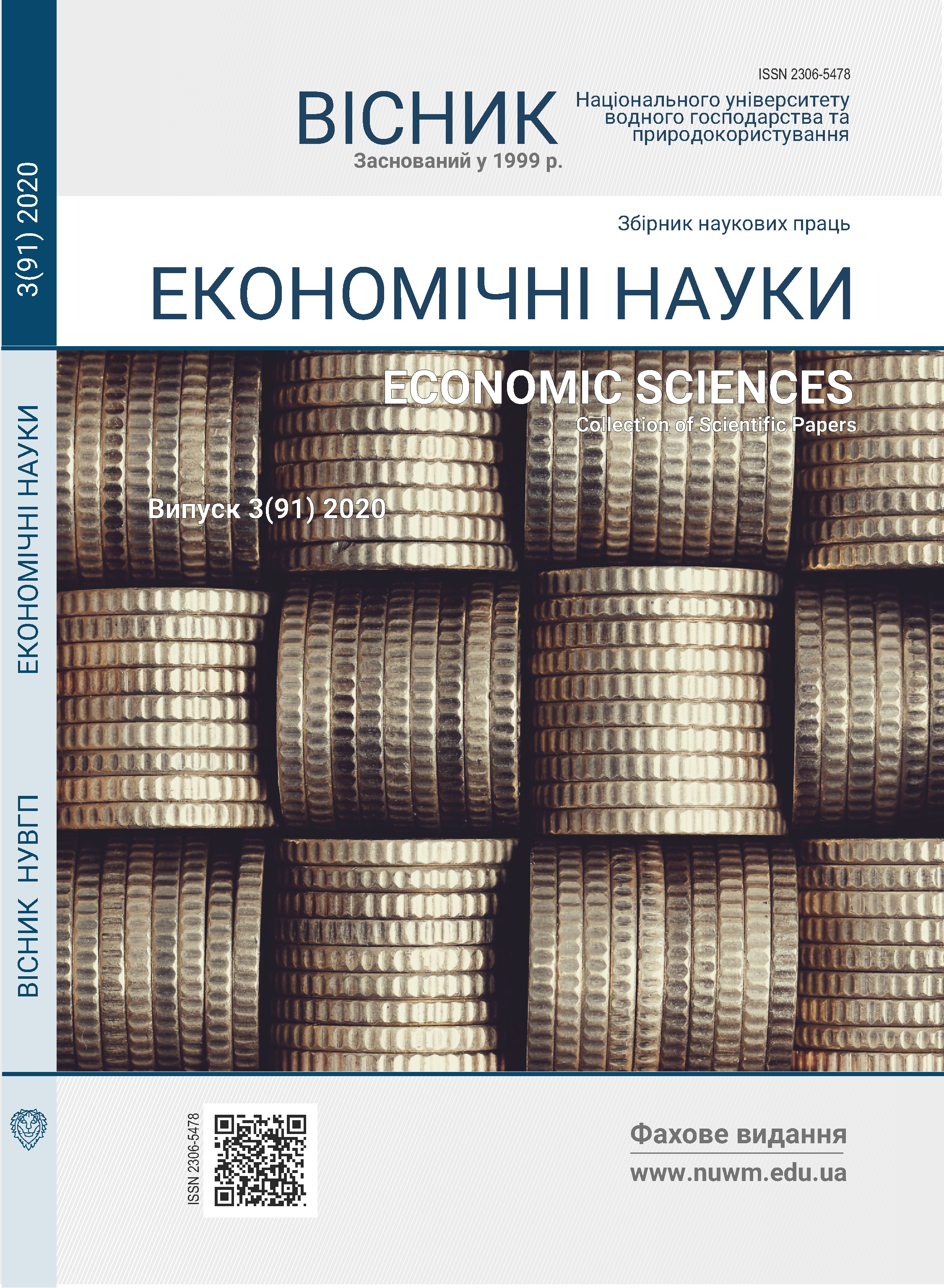SYNERGISTIC EFFECTS IN PROCESS OF CONCENTRATION PRODUCTION
DOI:
https://doi.org/10.31713/ve3202015Keywords:
concentration of production, synergy, synergistic effects, food industry.Abstract
The article considers the theoretical aspects of the manifestation of synergistic effects in modern concentration processes. The main forms of manifestation of synergistic effects on the example of the food industry are investigated. The main forms of manifestation of synergetic effects are considered. Theoretical approaches to the concept of satiety «synergetics» and «synergetic effects» are formed. Methodical tools for the study of synergetic effects are presented. Synergetic effects in terms of positive and negative results are considered. Consider the essence of the concept of «effect of concentration of production». Indicators of the effect reflect the degree of implementation of the main tasks of the enterprise: production to meet the needs of consumers; sales volume; market share of the enterprise; the cost of the enterprise; production capacity of the enterprise. It should also be noted that a high level of concentration of production does not guarantee high economic efficiency of production. Excessive concentration can lead to loss of control of the organization. In addition, if the company has a large size, irrational structure of fixed assets, suboptimal range of products, the level of concentration can not serve as an indicator of production efficiency. In each specific industry there are the most optimal sizes of the enterprises, objectively caused by the mechanism of formation of economic effect of concentration (scale). The optimal size should be understood as the most effective size of the enterprise. The criterion of economic efficiency of the optimality of enterprises is the minimum reduced costs of production and specific capital investment. The results of numerous studies show that the main reasons for failures in most cases of consolidation were the overestimation of the synergistic effect and the underestimation of costs in the preparation of the operation. After all, about 70% of mergers and acquisitions have not achieved the planned synergy effect from the merger. Therefore, companies must carefully analyze the possibilities of creating a synergetic effect and ensure maximum cooperation in the areas of its emergence. According to the theory, consolidations, in which the realization of the synergetic effect is expected, should increase the welfare of the company’s shareholders. The problem is that the synergistic effect is difficult to predict, and in practice it is not always possible to achieve the expected result. The synergistic effect of theconcentration of production is a combination of elements in which thepotential will exceed or decrease the sum of the potentials included in itselements.References
Ansoff I. Corporate strategy : revised ed. London : Penguin Books, 1987. 125 p.
KPMG : вебсайт. URL: http://www.kpmg.com. (дата звернення: 01.09.2020).
McKinsey & Company : вебсайт. URL: http://www.mckinsey.com. (дата звернення: 01.09.2020).
Кемпбелл Э., Лачс К. С. Стратегический синергизм / пер. с англ. Е. Ковачева, А. Колос и др. 2-е изд. М., СПб, 2004. 414 с.
Кравець К. П. Методичні підходи до оцінювання ефектів концентрації виробництва. Регіональна економіка та управління : науково-практичний журнал. 2020. 1 (27). С. 128–137.
Кравець К. П. Удосконалення методичних підходів до оцінювання ефектів концентрації виробництва на підприємствах. Економічні студії. 2020. 1(27). С. 95–101.
Марченко В. М. Самоорганізація злиття та поглинання: умови та потенціал : монографія. К., 2011. 352 с.
Скопенко Н. С. Особливості формування комплексної системи ризик-менеджменту. Теоретичні та прикладні питання економіки : зб. наук. праць. 2016. Вип. 1(32). С. 33–43.
Britchenko I. & Polishchuk Ye. Development of small and medium enterprises: the EU and East-partnership countries experience / Edited by Igor Britchenko and Yevheniia Polishchuk. Wydawnictwo Państwowej Wyższej Szkoły Zawodowej im. prof. Stanisława Tarnowskiego w Tarnobrzegu, 2018. 378 p. [in English].
Illiashenko S. M. & Strielkowski W. Managing economic growth: marketing, management, and innovations. Prague Institute for Qualification Enhancement. Prague, 2016. Vol. 1. 640 p.
Kravets K. P. Effects of ExportPromotional of the Food and Beverage Industry. 2019. URL: http://dspace.dgma.donetsk.ua (accessed: 22.08.2020).

